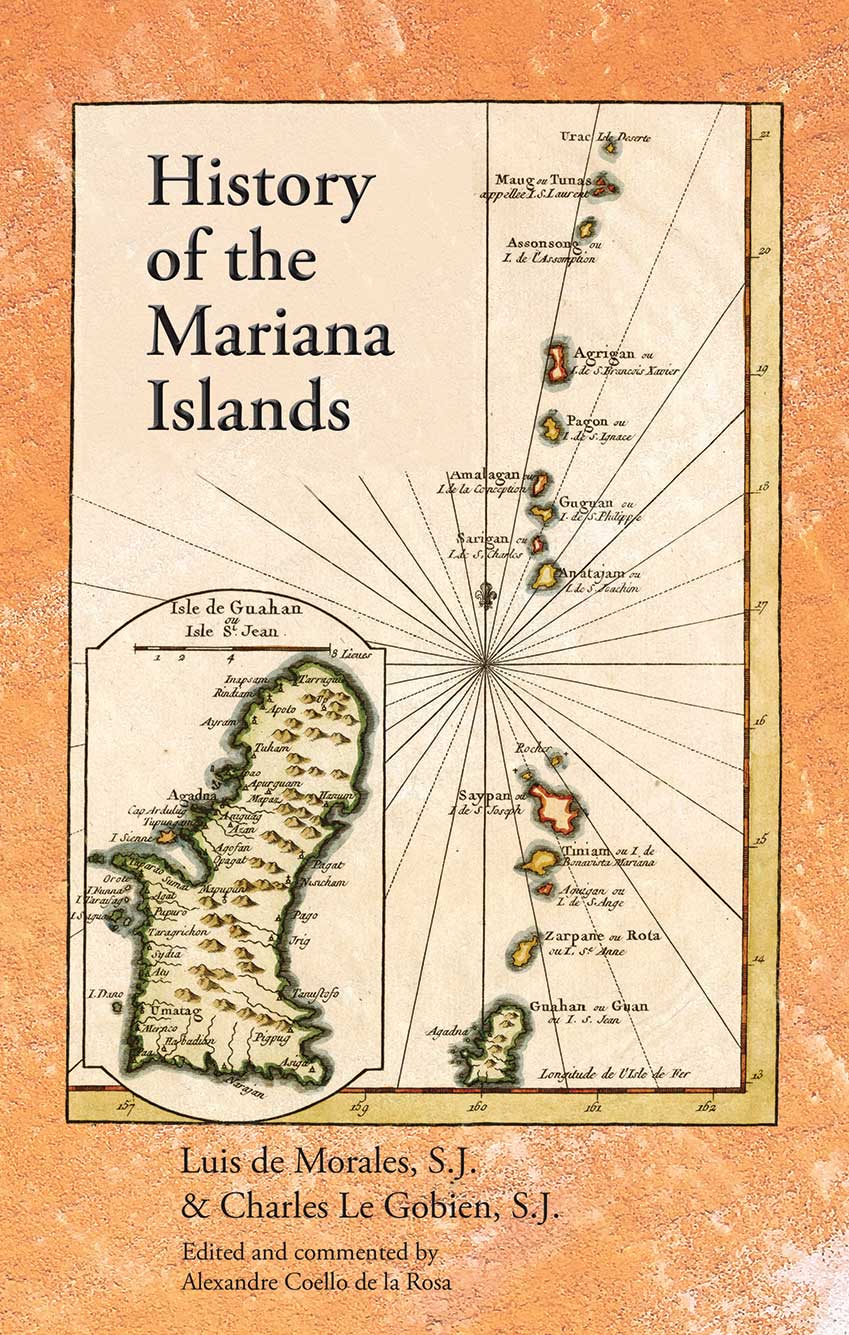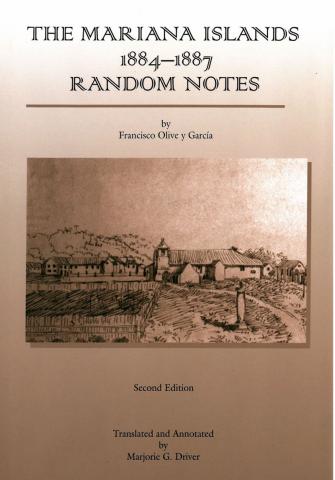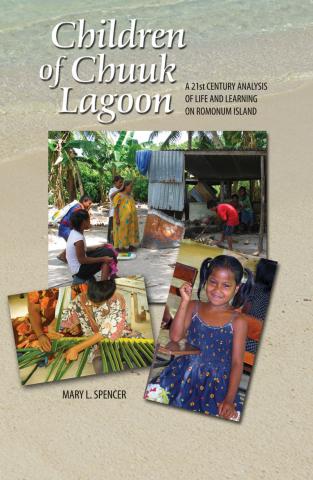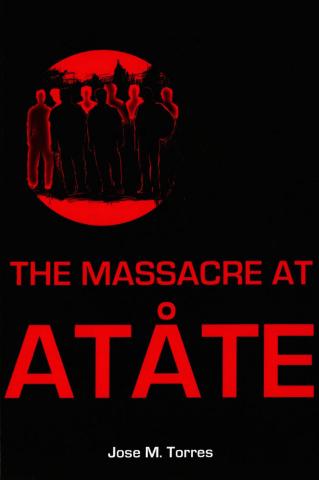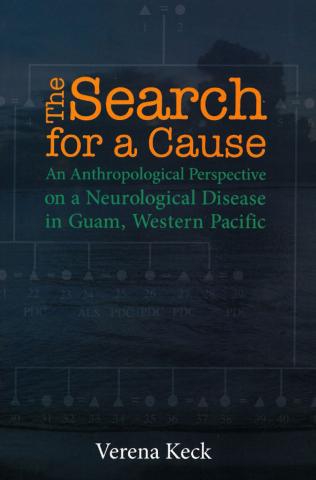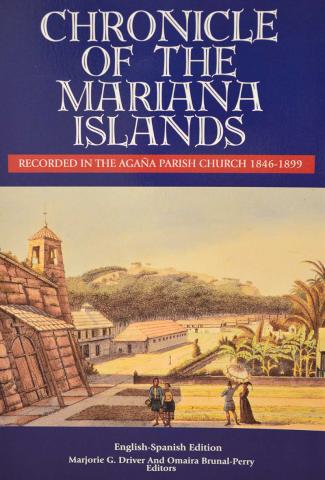- Home
-
Admissions
-
Academics
-
Students
-
Research
-
Research Centers
- Cancer Research Center
- Center for Excellence in Development Disabilities Education, Research & Service (CEDDERS)
- Center for Island Sustainability (CIS)
- Marine Laboratory
- Micronesian Area Research Center (MARC)
- Water and Environmental Research Institute (WERI)
- Western Pacific Tropical Research Center (WPTRC)
-
Research Centers
-
Outreach
- Giving
- Alumni
-
About
You are here

History of the Mariana Islands
Luis de Morales, S.J. & Charles Le Gobien, S.J. Edited and commented by: Alexandre Coello de la Rosa
Histoire des isles Marianes (History of the Mariana Islands), written in Paris in 1700, provides a detailed glimpse into a tumultuous and critically significant period in the history of the Mariana Islands and the Chamorro people – the period commonly referred to as the Spanish-Chamorro Wars.
I Atfabeton Chamorro: The ABCs of Chamorro
Cyrus Segawa Konstantinakos and Chamorro Studies Students from the University of Guam
I Malingu Na Påtgon (The Lost Child)
Rufina Fejeran Mendiola
Joseph Flores Sablan
I Malinguna Påtgon (The Lost Child) tells the story of a young girl named Bella, who feels like she has been forgotten by her large and very busy family. She finds friendship and love in her garden. Through captivating illustrations, I Malinguna Påtgon depicts key CHamoru values, particularly the importance of family and working together.
Ma Guaiya Yu', si Nåna yan si Tåta (Grandma and Grandpa Love Me)
Simone Bollinger and Dana Bollinger
Cielo de los Reyes
Ma Guaiya Yu’, si Nåna yan si Tåta (Grandma and Grandpa Love Me) is a vibrant picture book featuring lovely watercolor illustrations that depict the many ways grandparents show their love to their grandchildren. From holding hands in church to going on hikes in the jungle, this story describes the important role grandparents play in the lives of ifamagu’on-ta, our children.
Si Pedro yan i Hilét Oru na Ko'ko' (Pedro and the Golden Ko'ko')
Lance J. Osborn
Lance J. Osborn
Si Pedro yan i Hilet Oru na Ko’ko’ (Pedro and the Golden Ko’Ko’) is an exciting tale of a young boy named Pedro from Malesso’, who is on a quest to capture the clever Golden Ko’ko’. The Golden Ko’ko’ only comes around every 100 years, and Pedro, determined to catch him, spends his days setting up traps along the Ko’ko’s path in southern Guam.
The Mariana Islands, 1884-1887: Random Notes (Second Edition)
Francisco Olive y Garcia, Translated and Annotated by: Marjorie G. Driver
This report written by Governor Francisco Olive contains his insights about the social, political, and economic conditions of the Marianas. He focuses on the underdevelopment of the islands and draws the Spanish Government to look back at the colony’s history, specifically the second half of the 19th century. The report reflects the colonial mentality of Olive, who stresses the responsibility of the Spanish Government to the inhabitants of the Marianas, leaving unchallenged the right of Spain to maintain its sovereignty over the islands.
Children of Chuuk Lagoon
Mary L. Spencer
Children of Chuuk Lagoon examines the everyday lives of school-aged children in the Chuuk Lagoon island of Romonum in the Federated States of Micronesia. The book documents the natural histories, and home and school experiences of 12 case-study children ranging in age from 6 to 14.
The Massacre at Atåte
Jose M. Torres
This book tells the story of the courageous people of Malesso', an idyllic village in southern Guam. During the Japanese occupation, after scores of their people were killed, a group of men rose up in a little-known place called Atåte, where they fought and massacred the Japanese to protect their families and, in doing so, liberated themselves.
The Search for a Cause: An Anthropological Perspective on a Neurological Disease in Guam, Western Pacific
Verena Keck
In this anthropological study of a neurodegenerative disease, Amyotrophic Lateral Sclerosis/Parkinsonism-Dementia Complex (ALS/PDC) in Guam, Western Pacific, Verena Keck intertwines three separate perspectives of history, medicine, and anthropology.
Chronicle of the Mariana Islands Recorded in the Agaña Parish Church 1846-1899
Father Aniceto Ibanez del Carmen, O.A.R. & Father Francisco Resano del Corazón de Jesús, O.A.R. o Translated, Annotated, and Edited by: Marjorie G. Driver & Omaira Brunal-Perry
Over time, the CHamoru people of the Mariana Islands have been subjected to the ravishes of natural disasters, pestilence, war, and myriads of disquieting circumstances. After the arrival of the Spanish missionaries in the islands, such events were recorded, first by the Jesuits (1668-1769), and later by their successors, the Augustinian Recollects (1789-1908). The many Jesuit records have long been available; those of the Augustinians have been conspicuous by their absence. In 1969, an abridged version of a long sought after nineteenth century register, or chronicle, known to have been kept in the Hagåtña parish church was presented to the Micronesian Area Research Center, thereby confirming the survival of at least portions of the parish's Libro de cosas notables (The Book of Notable Things). For today’s readers, the Chronicle of the Mariana Islands is a treasure-trove of Chamorro nineteenth century memorabilia.


